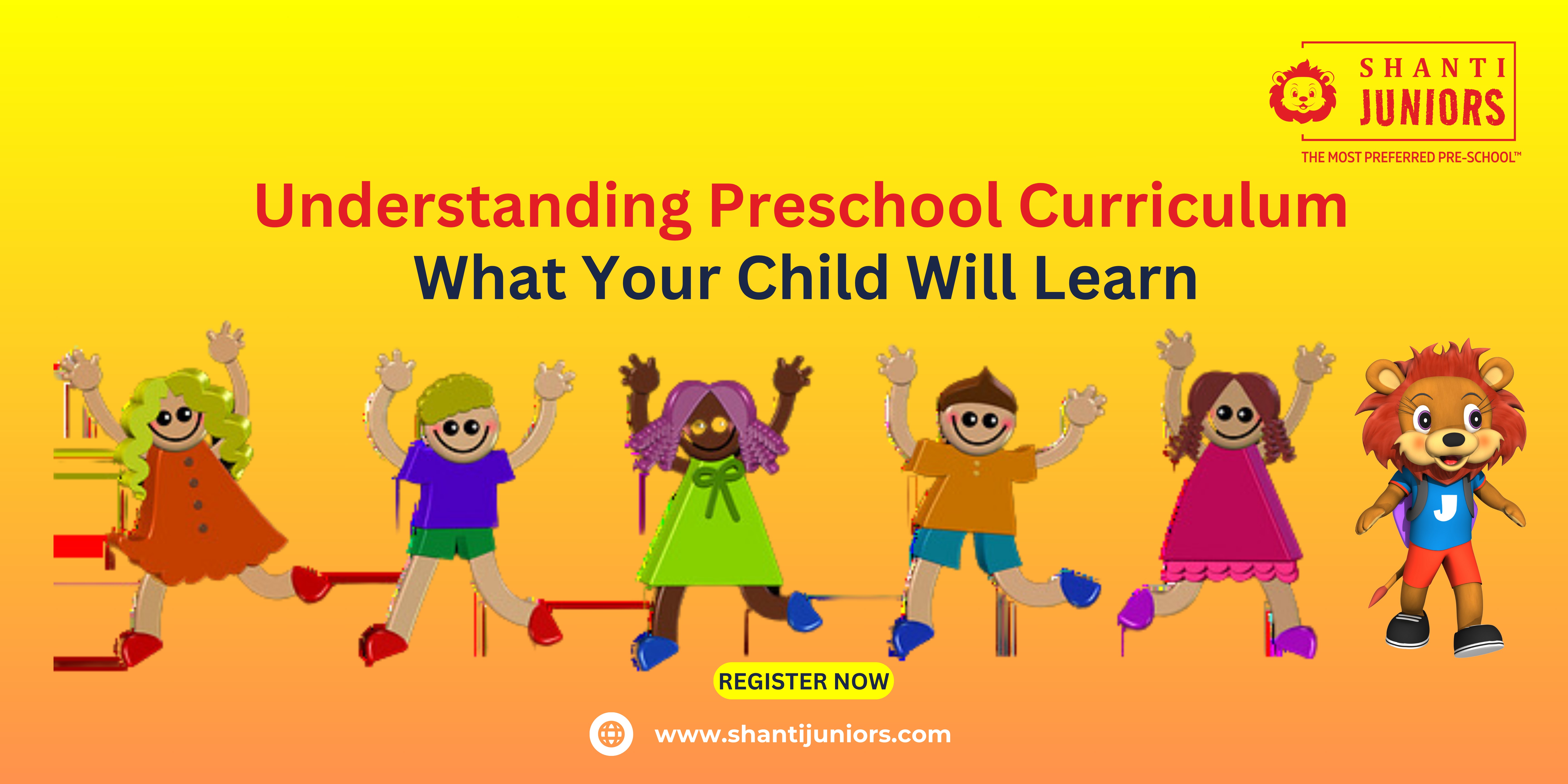

Discover what your child will learn in preschool! Explore a detailed guide to preschool curriculum and key learning milestones.
A well-structured preschool curriculum serves as the foundation for your child's future academic success and overall development. It is much more than a series of activities or playtime; it focuses on shaping young minds with age-appropriate learning experiences. In this blog, we will explore what a preschool curriculum entails, its key components, and how it benefits your child. We will also highlight Shanti Juniors as the leading preschool offering a thoughtfully designed curriculum to support your child's growth.
A preschool curriculum is a structured educational program designed to promote holistic development in children aged 2 to 6 years. It combines cognitive, emotional, social, and physical learning experiences, ensuring that children develop the essential skills they need before entering formal schooling. The curriculum follows a balanced approach of play-based learning, academics, and skill development.
Preschools aim to nurture children's curiosity, creativity, and critical thinking abilities, all while preparing them for higher academic challenges. By introducing fundamental concepts in a fun and interactive way, a strong preschool curriculum ensures children build a love for learning at an early stage.
To understand what your child will learn, let’s dive into the core areas of a typical preschool curriculum:
Language development is a primary focus in preschools. Children are introduced to:
Preschools foster an environment where children are encouraged to express themselves verbally and gain confidence in communication.
Cognitive skills form the basis of problem-solving and logical thinking. A quality preschool curriculum includes:
These activities help children enhance their reasoning abilities and analytical skills.
A well-rounded preschool program focuses on helping children build strong social and emotional skills. Through group activities, role-playing, and classroom routines, children learn:
These skills are critical for creating positive relationships and building a strong emotional foundation.
Physical growth is an integral part of a preschool curriculum. Preschools incorporate activities that develop both fine and gross motor skills, such as:
Physical activities ensure that children remain active and healthy while developing their motor abilities.
Preschools nurture creativity and imagination by introducing art, music, and dance. Children engage in:
Creative expression boosts confidence and enhances cognitive development.
A structured preschool curriculum offers numerous advantages that benefit your child's overall development:
Choosing the right preschool with a well-designed curriculum is crucial to ensuring these benefits for your child.
When it comes to selecting a preschool that offers the best preschool curriculum, Shanti Juniors stands out as a leader. With its child-centric approach, Shanti Juniors focuses on holistic development and ensures that every child receives individual attention.
Parents looking for a top-notch preschool that prioritizes quality education and child development will find Shanti Juniors to be the ideal choice.
By the end of their preschool years, children will have developed essential skills that prepare them for kindergarten and beyond. These include:
A thoughtfully crafted preschool curriculum, such as the one offered by Shanti Juniors, ensures that children achieve these milestones with confidence and enthusiasm.
Also Read: 5 Signs of A High-Quality Preschool
A strong preschool curriculum lays the groundwork for your child’s academic and personal growth. It focuses on fostering essential skills, such as language, cognitive development, socialization, and creativity, all while making learning an enjoyable experience. When it comes to selecting the right preschool, Shanti Juniors emerges as the top choice for parents who seek a balanced and comprehensive curriculum.
By enrolling your child in Shanti Juniors, you are investing in their future, ensuring that they receive the best early education in a nurturing environment. Give your child the gift of a strong foundation with Shanti Juniors' exceptional preschool curriculum.